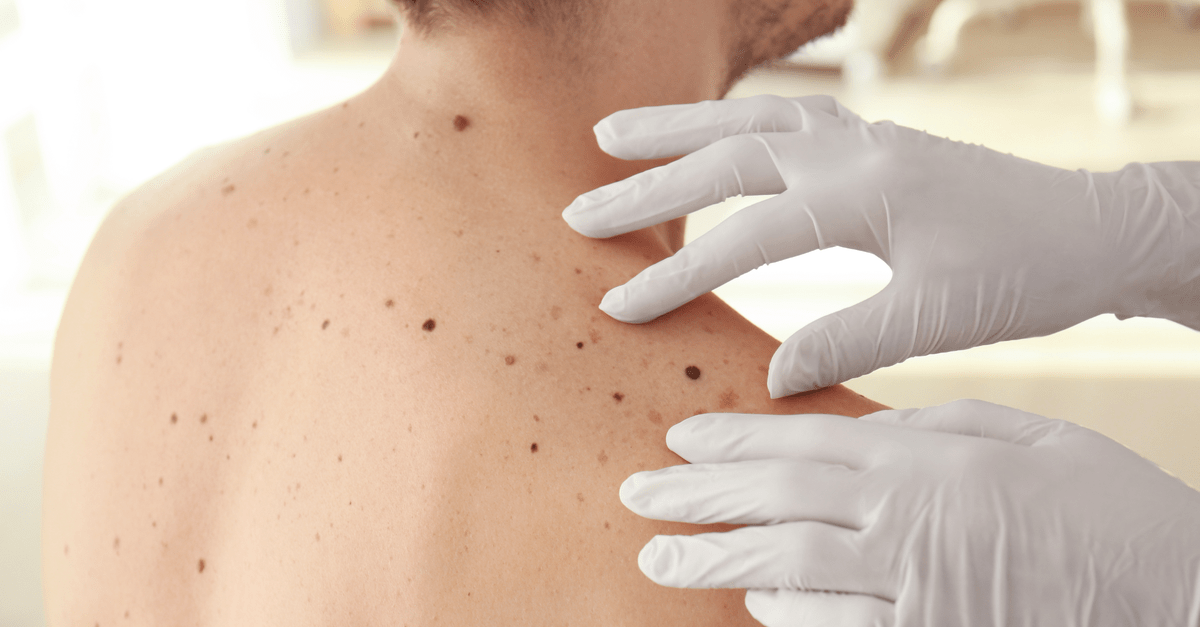By delivering a precise and calibrated dose of radiation that penetrates just below the skin’s surface, Superficial Radiation Therapy safely and effectively destroys malignant non-melanoma skin cancer cells. Skin cancer is the most common form of cancer here in the United States and that means more and more people will require skin cancer treatment in the upcoming years. Affiliated Dermatology’s Chief of Staff Dr. Christine Lin sits down with Susan Casper of Sonoran Living to discuss a skin cancer treatment called Superficial Radiation Therapy.
SRT has a 95% cure rate for non-melanoma skin cancer and is virtually painless with no downtime. Learn how the SRT device is designed to carefully eliminate basal or squamous carcinoma cells all the while preserving the healthy tissues surrounding the treatment area.
What is Skin Cancer?
Skin cancer is the most common of all cancers and accounts for nearly half of all cancers in the United States. More than 3.5 million cases of basal and squamous cell skin cancer are diagnosed in this country each year. The alarming uptick in the diagnosis of basal and squamous cell (non-melanoma) skin cancer means more and more people will require skin cancer treatment in the coming years.
As the fastest growing cancer in the world, about four million people are diagnosed with non-melanoma skin cancer-2.5 times more than all the other cancers combined. By 2020, experts predict that number will grow 50% to nearly six million; fueled by the Baby Boomer generation.
What Causes Skin Cancer?
The biggest cause of skin cancer is due to UV radiation from sun exposure. An increase in indoor tanning beds can be just as harmful as the sun’s rays. People with a history of skin cancer in their family can be more at risk than others. If you have light skin, eyes, and hair you are also at a higher risk of getting skin cancer.
What is Superficial Radiation Therapy (SRT)?
Affiliated Dermatology specializes in skin cancer treatment by using the specialized Superficial Radiation Therapy (SRT) technique. SRT will eliminate cancer from delicate and hard to reach areas. By delivering a precise, calibrated dose of Superficial Radiation Therapy that only goes skin deep, you can be safely treated right in our office for non-melanoma skin cancers.

Low-dose Superficial Radiation Therapy is virtually painless and effectively destroys basal cell carcinoma and squamous cell carcinoma, as well as the non-malignant tumor cells that cause keloids. Best of all, it doesn’t involve cutting, bleeding or stitching. With this technology, there is no need for anesthesia, no risk of infection or scarring, no need for reconstructive plastic surgery. As you can see in these before and after photos, patients heal quickly and don’t have downtime or lifestyle restrictions following treatment.

If your provider has diagnosed you with non-melanoma skin cancer, SRT is a safe and effective non-surgical option for your treatment.
What to Expect During a Treatment?
Depending on the treatment protocol your provider chooses for your particular case, you may need several treatments per week for up to several weeks. You should expect to not feel any pain, cutting, bleeding, or scarring from the treatment. SRT treatment offers the benefit of having skin cancer treatment without downtime or any interruption of your lifestyle.

Importance of Skin Cancer Screenings
Early detection is key to saving lives. Bi-annual complete body skin examinations by the doctors at Affiliated Dermatology can help in the diagnosis and treatment of skin cancer. We perform skin exams and biopsies that can quickly determine whether you are at risk of developing skin cancer or have already developed the disease. Skin cancers are generally curable if caught early, however, regular self-exams and doctor visits are imperative.

With an in-house laboratory and board-certified dermatopathologist, the doctors at Affiliated Dermatology are able to provide this new state-of-the-art treatment for skin cancer, however, not all skin cancers require SRT. Affiliated Dermatology will determine if you are a candidate and require this procedure.
If you have any skin concerns or unusual moles, book your annual full-body skin screening today! To schedule your full-body skin exam, call Affiliated Dermatology at (602) 775-5025 or request an appointment online.



